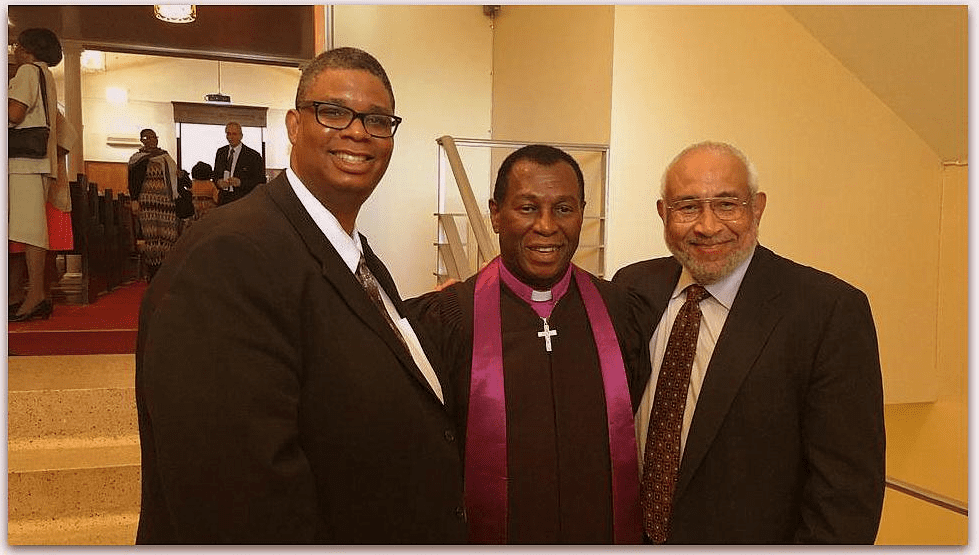A shout out to the Freedmen’s Bureau Project for sending us this report on the First Canadian Black History Summit recently held in Ontario, Canada.

According to the Summit Report from the Freedmen’s Bureau Project:
Nearly 500 participants gathered for the inaugural Canadian Black History Summit held at the Etobicoke, Ontario, Canada building of The Church of Jesus Christ of Latter-day Saints on April 16, 2016.
The conference, co-hosted by FamilySearch International and the Ontario Black History Society, provided an opportunity for participants to connect with black genealogy experts and black history, specifically the Freedmen’s Bureau Project.
The Freedmen’s Bureau Project is an exciting family history initiative to help both black Canadians and black Americans reconnect with their Civil War–era ancestors, focusing on the records of former U.S. slaves.
Thom Reed, a specialist on the Freedmen’s Bureau Project, urged the attendees to help complete the indexing of more than four million records that will be made public this fall. “We are tearing down walls, because not having an ancestry is like not existing. The records we will be releasing in the fall are making it possible for individuals to find themselves for the first time.”
The summit presenters comprised notable black history experts Darius Gray (author, historian, journalist and co-director of the Freedman’s Bank Project, Bryan Prince (author, historian and consultant), Shannon Prince (curator of the Buxton National Historic Site and Museum), Thom Reed (FamilySearch senior marketing manager), Rosemary Sadlier (author and historian) and Dr. Bryan Walls (author and founder of the John Freeman Walls Historic Site and Underground Railroad Museum).
Nikki Clark, president of the Ontario Black History Society, welcomed the summit guests, which included members of Parliament; government officials; leaders of black history sites, black churches and black organizations from across Ontario; and Ontario Mormon leaders.
Presenter Rosemary Sadlier described the proceedings of the summit with “sankofa,” a word from the Ghanaian Twi language that translates to “go back and get it.” She explained that the event provided an excellent opportunity for those in attendance “to go back and reclaim our past so we can move forward… so we can understand why and how we came to be and who we are today.”
Greetings extended by Ontario Premier Kathleen Wynne – through a letter presented by Yvan Baker, member of provincial parliament for Etobicoke Centre – echoed Sadlier’s sentiments. Premier Wynne’s letter quoted Marcus Garvey, the Jamaican national hero, who once said, “A people without knowledge of their past history is like a tree without roots.” Premier Wynne’s letter further stated, “This [Canadian Black History Summit] is a unique opportunity for black Ontarians to discover their roots and to learn more about their ancestors.”
Most attendees learned for the first time about the importance of gathering their genealogy and about the struggles that descendants of former U.S. slaves have when searching their black family history beyond 1870. However, the day was more than just a history lesson. The information presented at the summit was life-altering for many people.
“This speaks to me,” shared Gerard Richardson of Toronto, Ontario. A first-generation immigrant to Canada from the Republic of Trinidad and Tobago, Richardson was covering the summit on behalf of Caribbean Camera, a Toronto newspaper. “I know there are so many other things I could have decided to do today, but I am so happy I came here instead.”
Andrea Johnson from Brampton, Ontario, attended the summit because of her interest in learning more about black history. “I came with the expectations of learning about history, but I believe this summit has made history by presenting us today with the work of the Freedmen’s Bureau Project,” shared an enthusiastic Johnson, who is now thinking of volunteering to help complete the project, which as of the last tally stands at 72 per cent complete.
Note: GenealogyBank has the largest collection of African American newspapers online. Search our expansive collection of Black American newspapers spanning over 170 years of African American history in the United States. Our exclusive African American newspapers archive provides detailed coverage of the Black American experience and the daily lives of millions of Black Americans from 1827-1999.
Related African American Genealogy Articles:
